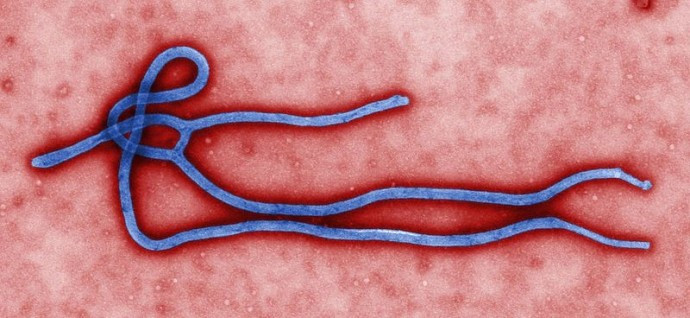'Good virus' believed to help increase survival chances in Ebola and HIV infections

A common virus that infects billions at some point of their lives is believed to deliver some protection against other deadlier viruses like HIV and Ebola.
David O'Connor, a pathology professor at the University of Wisconsin in Madison, found the genetic fingerprints of the virus GBV-C in the records of 13 samples of blood plasma from Ebola patients.
While six of the 13 people who were co-infected with Ebola and GBV-C died, seven survived.
Combined with earlier studies that have hinted persistent infection with the virus slowed disease progression in some HIV patients, researchers think the virus could be beneficial.
The results could also simply mean that people aged 20 to 40 are more likely to be infected with GBV-C and more likely to survive Ebola.
"We're very cautious about over-interpreting these results," O'Connor told NPR. He is now waiting to get a bigger sample, to see if there really is a strong connection between GBV-C infection and survival.
The GB Virus-C came from a small monkey — a marmoset — that had been used in an experiment to diagnose a surgeon with hepatitis.
The virus infects a type of white blood cell and dampens part of the immune system. With HIV, the virus helps reduce inflammation, and that in turn helps slow the onset of Aids.
Cancer link
Similarly, it might also reduce inflammation in some people fighting off an Ebola infection.
However, the virus is not entirely harmless.
A National Institutes of Health study last year suggests a cancer link to the virus. People with a cancer of the lymphatic system, non-Hodgkin lymphoma, were seen to be more likely to be infected with GBV-C.
HIV mostly targets CD4 T lymphocytes, a cell involved in initiating an immune response. The virus hijacks the cell's reproductive process to produce more copies of itself which infect and kill other cells.
Filoviruses like Ebola get all their genetic material from RNA, instead of DNA and most of the genetic information stored in the RNA codes for a handful of proteins as compared to about 20,000 in humans.
One of these proteins, glycoprotein, is suspected to play a big role in Ebola. A version of this protein is believed to bind to host cells, enter and replicate inside while another version is suspected to work by suppressing the immune system.
There is still much not known about the working of these two deadly viruses, which have also seen to mutate rapidly and deter drug treatments.
© Copyright IBTimes 2025. All rights reserved.





















